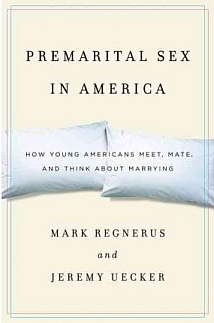- HOME
- INTRO TO THE FORUM
- USE AND MISUSE
- BADLY WRITTEN, BADLY SPOKEN
- GETTING
TO KNOW ENGLISH - PREPARING FOR ENGLISH PROFICIENCY TESTS
- GOING DEEPER INTO ENGLISH
- YOU ASKED ME THIS QUESTION
- EDUCATION AND TEACHING FORUM
- ADVICE AND DISSENT
- MY MEDIA ENGLISH WATCH
- STUDENTS' SOUNDING BOARD
- LANGUAGE HUMOR AT ITS FINEST
- THE LOUNGE
- NOTABLE WORKS BY OUR VERY OWN
- ESSAYS BY JOSE CARILLO
- Long Noun Forms Make Sentences Exasperatingly Difficult To Grasp
- Good Conversationalists Phrase Their Tag Questions With Finesse
- The Pronoun “None” Can Mean Either “Not One” Or “Not Any”
- A Rather Curious State Of Affairs In The Grammar Of “Do”-Questions
- Why I Consistently Use The Serial Comma
- Misuse Of “Lie” And “Lay” Punctures Many Writers’ Command Of English
- ABOUT JOSE CARILLO
- READINGS ABOUT LANGUAGE
- TIME OUT FROM ENGLISH GRAMMAR
- NEWS AND COMMENTARY
- BOOKSHOP
- ARCHIVES
TIME OUT FROM ENGLISH GRAMMAR
This section features wide-ranging, thought-provoking articles in English on any subject under the sun. Its objective is to present new, mind-changing ideas as well as to show to serious students of English how the various tools of the language can be felicitously harnessed to report a momentous or life-changing finding or event, to espouse or oppose an idea, or to express a deeply felt view about the world around us.
The outstanding English-language expositions to be featured here will mostly be presented through links to the websites that carry them. To put a particular work in better context, links to critiques, biographical sketches, and various other material about the author and his or her works will usually be also provided.
“Sexual economics” seen in mating behavior of young Americans
In their book Premarital Sex in America: How Young Americans Meet, Mate, and Think about Marrying (Oxford University Press, 312 pages), sociologists Mark Regnerus and Jeremy Uecker use the so-called “Theory of Sexual Economics” to explain the sexual behavior of today’s young American adults. This theory is based on a 1989 college campus research that came up with this finding: When physically attractive people approached opposite-sex students and asked, “Would you go to bed with me tonight?”, not a single woman said yes, but 75 percent of men accepted the invitation. This gender disparity forms the basis for the theory, which postulates that most young men want sex to be as easy as possible, while young women generally want some prerequisites like commitment, affection, security, and love before consenting to have sex with men.

Regnerus and Uecker argue that this gender disparity, alongside the increasing scarcity of men on campus, has lead to an oversupply of sellers that works to a buyer’s advantage. They say that this is partly responsible for the rise of “the hookup culture” at colleges.
In “The Meet Market,” a review of Regnerus and Uecker’s book that came out in the March 1, 2011 issue of TNR.com, book writer Evan Hughes finds the theory pursued by the book unpalatable. “Equating an intimate act to a business transaction is not only crass and reductive; it is also analytically misleading,” Hughes says. “The analogy to commerce implies an adversarial situation wherein the buyer always wants to pay the minimum and the seller wants to get the maximum. But men often find themselves bestowing attention, falling in love, and getting married after they have already been sleeping with the woman in question. Sexual economics has trouble accounting for that.”
Read Evan Hughes’s “The Meet Market” in TNR.com now!
OTHER INTERESTING READINGS:
In “The Day the Movies Died,” an article that came out in the February 2011 issue of GQ.com, Mark Harris laments that Hollywood films aren’t going to get better anytime soon and fears that the death of this great American art form might be forthcoming. But he says that the embarrassing part about this bleak scenario is that the movie-going public is partly to blame for it: “We can complain until we’re hoarse that Hollywood abandoned us by ceasing to make the kinds of movies we want to see, but it's just as true that we abandoned Hollywood. Studios make movies for people who go to the movies, and the fact is, we don't go anymore…”
Read Mark Harris’s “The Day the Movies Died” in GQ.com now!
In “The descent of man?”, an article that came out in the February 28, 2011 issue of The Independent UK, Olly Bootle ponders whether Charles Darwin’s Theory of Evolution still applies to humans. He asks: “Evolution may have made us, but at some point, did we stop evolving?” He concedes that the findings of scientists show that we have not, but he says that when it comes to changes in our future, it’s hard to think of any that will have as much possible impact on our evolution as our new-found ability to tamper directly with our genes.
Read Olly Bootle’s “The descent of man?” in The Independent UK now!







